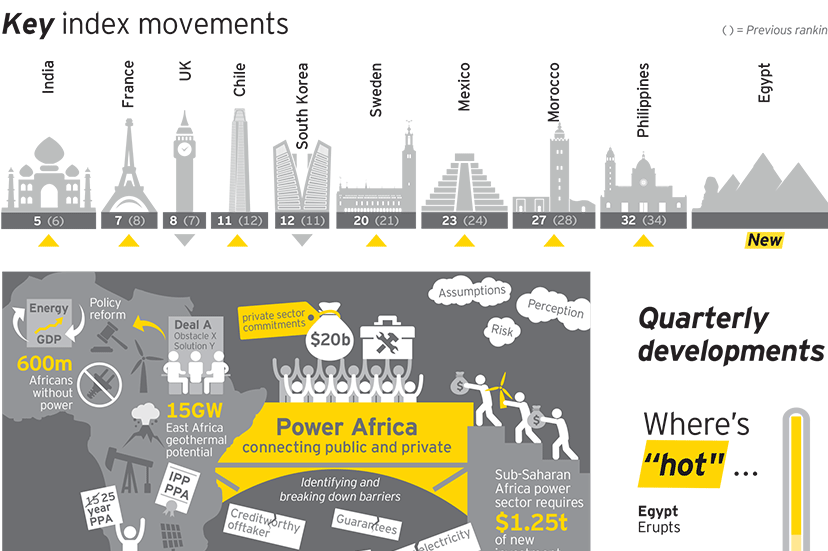A recent push by the Indian government, driven by new prime minister Narendra Modi, has pushed India up one place to fifth position in the index.
Modi included a promise to boost renewable energy in his party's winning manifesto at the last election in May 2014.
The country has also had a number of national campaigns aimed at attracting global investors.
Last month the State Bank of India announced plans to invest $12 billion in developing 15GW of renewable projects by 2020.
The Make-In-India campaign resulted in manufacturer Suzlon to set out plans for 3GW of renewable energy projects in the Indian state of Gujarat by 2020. India's energy ministry also held the Re-Invest 2015 conference in New Dehli in February.
UK-based renewables fund Actis has also invested $230 million in an Indian subsidiary with the aim of building 800MW in the country by 2019.
The UK, alternatively, slipped to its lowest place in the rankings in 12 years. EY blamed the indecision surrounding the role of renewable energy in the future of the UK's energy mix – hampered by the political uncertainty surrounding a general election in May.
EY also warned last week's contract for difference (CfD) auctions might not be enough to attract further investment.
EY energy corportate finance leader Ben Warren, said: "The CfD regime as it stands does raise some questions. The very slow passage of market reform and the late introduction of the CfD regime has made it very difficult for developers to sanction investment in new projects."
The UK was overtaken by France in the index as a result of an energy transition bill that is currently progressing through parliament.
The transition bill would introduce a new subsidy system, but last week it emerged an amendment to the bill would increase a wind turbine exclusion zone.
The clause increases the exclusion zone around houses and areas earmarked for housing development from the current 500 meters to 1,000 meters.
If passed, the measure would effectively block deployment in much of France and make it impossible for the country to achieve its target – also stated in the law – of sourcing 40% of electricity from renewables by 2030.
Elsewhere in EY's index, Egypt becomes a new entrant in the top 40, coming in above Russia in 39th place.
EY said revived efforts to produce 20% of its power from renewable by 2020 was the main reason behind its index spot. The government as also introduced a new feed-in tariff scheme, described by EY as generous.
Forty-nine companies qualified to build wind power projects of up to 50MW each in the first round of an Egyptian tender for independent power producers.

.png)



.png)









